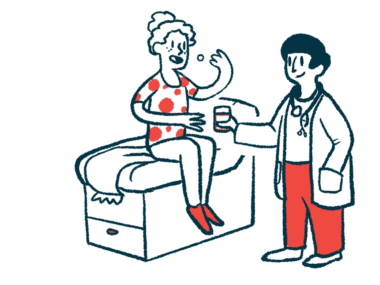The rare disease community needs a place at the table, too
A columnist discusses advocacy during a special dinner
Written by |

As summer comes to a close, with cooler air just around the corner, it’s a good time to reflect on the past three months and share my experiences. I also have an important announcement.
In July, the Republicans met in Milwaukee to nominate their candidate for president. In August, the Democrats met in Chicago to do the same. Most years, July and August find me relaxing in Maine, but not this year. The political conventions kept me at home. I arrived in Maine only a few days ago.
I have myasthenia gravis (MG), which has a way of upsetting any plans. This summer, I experienced a crisis linked to severe heat in Texas, where I live. My infusion schedule for treatment also limited my ability to travel.
But the main reason I couldn’t travel earlier is because I was certain that one of the presidential nominees would offer me a vice presidential spot on the ticket. My bags were packed, my speech was written, my hair was trimmed, and I was ready for prime time.
Defining our priorities
Well, surprisingly, the call never came, and my hopes were dashed. The only comfort I find is that another social studies teacher was offered the opportunity instead — which confirms my belief that I was one of the finalists. I guess I just wasn’t the right social studies teacher. I’ve licked my wounds, examined my options, and reached a decision.
Since neither party has called me, I’ll run for president as the leader of a new party. My purpose is to raise awareness about the needs of the rare disease community, so I’m calling on all who are interested to join me in the formation of the Rare Disease Party, or RDP.
Let me be clear: This is an exercise in satire. In truth, I’d rather stick needles in my eyes than run for political office.
My friends and family indulged me when I asked several of them to join me for dinner. I shared the joke with them and then asked what the top three issues should be for the party. They gave excellent answers.
A caregiver for someone else with MG became emotional when she discussed her frustration with insurance forms. “How can we expect people overcome with fatigue to navigate our incredibly complex insurance system?” she wondered. She noted that it is essential for forms to be filled out with absolutely no errors, as denials can lead to negative health outcomes.
Someone else asked if anything could be done to ease the awkward situations faced by wheelchair users or people who require other medical devices. Someone suggested that we should advocate for more programs in schools to educate young people about diseases and treatments. They would then carry this knowledge with them throughout their lives, which could alleviate awkward situations and address some of the challenges presented by ableism.
As our dinner wound down and discussion headed to a close, a final thought was tossed out: “We just want to be heard,” said a friend who had been quiet most of the night. “We have as much value as any other interest group. Businesses, commercial interests, and lots of others have a place at the table. There needs to be a place for us.”
I guess there really is no need for my RDP. Still, I believe that those of us in the rare disease community can, and should, advocate for a place at the table of both major political parties. We do have much to offer, and we need to be heard.
Note: Myasthenia Gravis News is strictly a news and information website about the disease. It does not provide medical advice, diagnosis, or treatment. This content is not intended to be a substitute for professional medical advice, diagnosis, or treatment. Always seek the advice of your physician or other qualified health provider with any questions you may have regarding a medical condition. Never disregard professional medical advice or delay in seeking it because of something you have read on this website. The opinions expressed in this column are not those of Myasthenia Gravis News or its parent company, Bionews, and are intended to spark discussion about issues pertaining to myasthenia gravis.




Leave a comment
Fill in the required fields to post. Your email address will not be published.